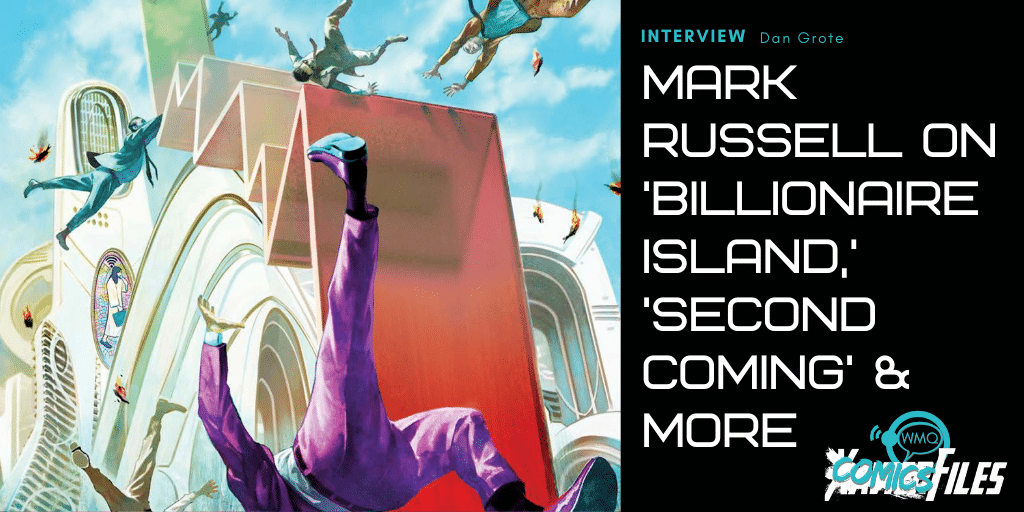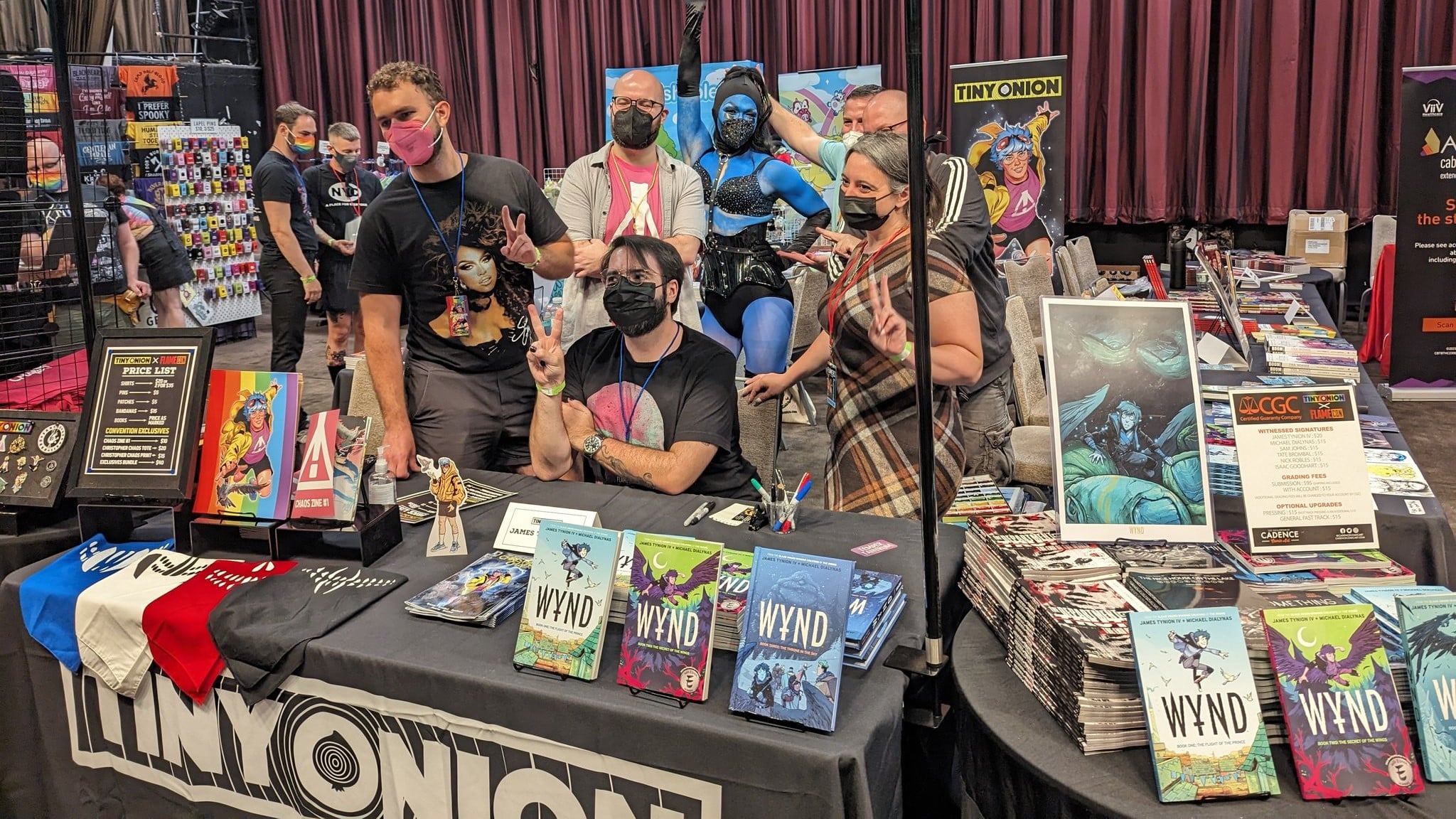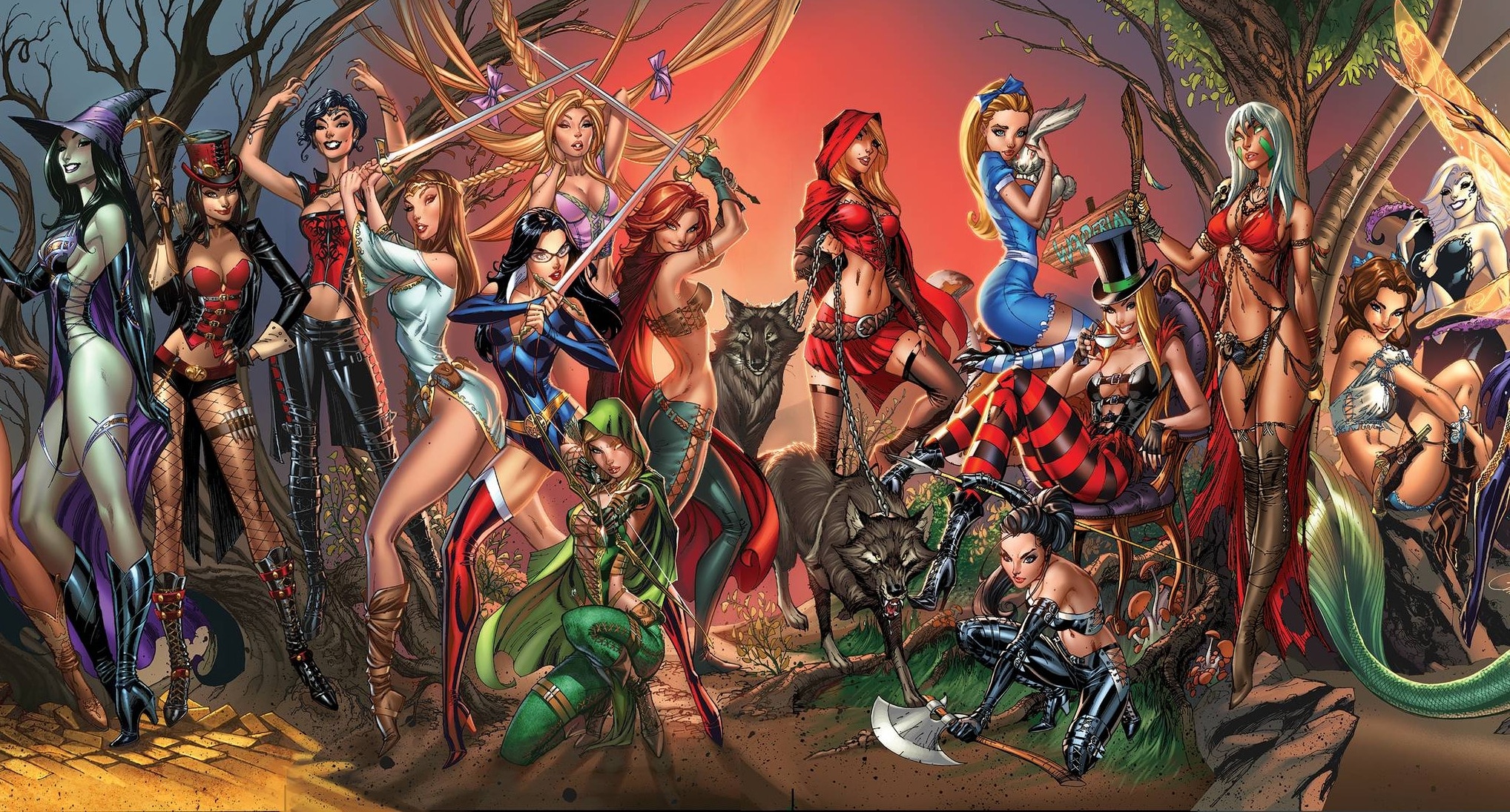Mark Russell and Steve Pugh’s AHOY Comics series “Billionaire Island” arrived in early March as an uneasy world watched what would soon be declared a pandemic spread across the globe and collectively tugged on its collar and made a big cartoon gulping sound.
Suddenly, the idea of the world’s billionaires moving to a floating island as the rest of the world burned seemed less like pointed satire and more like something Elon Musk was already hard at work on.

Life and art continued to intertwine maddeningly, and the series collection arrives in comic shops and bookstores in a month when that same pandemic is surging back with a vengeance, and a presidential election that should be all but settled is being challenged by a party that can’t seem to bring itself to respect the will of the American people.
It can feel downright apocalyptic sometimes.
But on the bright side, that means Jesus is coming back …
… in the sequel to Russell and Richard Pace’s 2019 Jesus-superhero buddy comic “Second Coming,” also from AHOY.
Russell talked to Xavier Files about both series, his upcoming DC work and trying to keep sane in insane times.
Dan Grote: How did you keep sane during election week?
Mark Russell: Not convinced that I am. It’s been like trying to work while knowing a loved one is in the hospital. That loved one being the country I live in.

DG: “Billionaire Island” was one of the series released at the beginning of the year that saw a pause in publication because of the pandemic. Given how the events of this year only further served to expose the inequities and injustice in the American capitalist system, were you surprised – for good or ill – to find your book becoming even more relevant in the intervening months?
MR: Not surprised so much as disappointed. I mean, I didn’t expect a series involving a pandemic to actually be interrupted by a pandemic, but a lot of what “Billionaire Island” is about is how we all seem to be OK with floating toward the waterfall even though we’re fully aware that there’s a waterfall. Our capacity for self-delusion and inaction seems bottomless, so it’s not terribly surprising to me when people accept their victimhood, though I really wish we would swim for the shore.
DG: What’s your biggest hope for a new presidential administration?
MR: I think the first priority has to be shoring up our elections. Making them less susceptible to misinformation campaigns, voter suppression and less reliant on our elected officials’ princely willingness to abide by norms and traditions that they aren’t legally required to. We have to accept that our norms are a lot less normal now and, if we want to continue even the pretense of being a free nation, we need to better insulate ourselves against demagogues or cult figures who might not care about things like elections or rule of law. Once our election systems are repaired so that every vote is counted, we don’t have gerrymandered districts or eleven-hour waiting lines to cast a vote, then it will be much easier to do the rest of the work that needs to be done.

DG: BI features a populist right-wing video blogger who goes by “Angry Guy on a Motorcycle,” who, true to his name, is always on a motorcycle, whether he’s recording his show from his tool shed or sitting in the large foyer of his mansion. Which leads me to wonder: Is he glued to that thing? Is he a prototype synthesis of man and machine? Is he the future?
MR: He is the present. One of my favorite panels shows Some Angry Guy on A Motorcycle sitting on his motorcycle inside his mansion, underneath his chandelier. That captures, in one elegant image, the reality of these supposed “grassroots pundits” like Sean Hannity, who position themselves as the spokesmen for blue collar people in rural America despite being millionaires in the service of billionaires.
DG: You’re about to start a second volume of “Second Coming,” your series in which Jesus teams up with a superhero. Given you came on many people’s radars with “God Is Disappointed in You,” your 2013 retelling of the Bible, do you ever worry you’ll run out of things to say about religion?
MR: I don’t see “Second Coming” as being about religion so much as about how we get it wrong. About all the endless ways we try to self-medicate with ideas only to find that we’re still living in a deeply imperfect world where the only real solution is the one we had at the beginning. That the only real joy in life is that which we get from each other. So that’s a pretty flexible subject and one about which I feel I still have a lot more to say.

DG: What do you do for an encore after you’ve killed Satan?
MR: Is Satan ever really dead? I mean, as we’ve established, there is an afterlife. But where does Satan go when he dies? Does he just keep coming back like a bad penny? This isn’t really addressed in the second series, but we get a lot more on what life is like in Heaven and about Christ getting steamrolled by Christianity.
DG: How (if at all) has the Hell Year of 2020 changed your understanding of organized religion, the superhero genre and/or both in concert?
MR: 2020 hasn’t really changed much of my understanding of religion or superheroes, but it has surely undermined my faith in institutions, which wasn’t too hot to begin with.
DG: Long ago, when it was first reported that you and Richard Pace had asked DC for the rights back on “Second Coming,” it felt like easy money the book was going to end up at AHOY. Two books in (and some Edgar Allan Poe shorts), what do you like about working with AHOY?
MR: Aside from the fact that they’re one of the few publishers that actually wants funny comics rather than tolerating them, every decision they make seems to be with the quality of the story in mind. One of the things they immediately did, and from which “Second Coming” benefited enormously, was to give me some extra pages to work with for issue 1. This allowed me to delve into Christ’s backstory and his relationship with his best friend Simon, without which, it’s a much different comic. The thing I love about working with AHOY is that they operate more like a laboratory or a boutique than a conveyor belt. They’re willing to take the time and effort to make sure a comic is done right instead of merely on time.

DG: Straying ever so briefly from AHOY, you’re writing DC’s “Future State: Superman vs. Imperious Lex” this winter alongside your “Flintstones” and “Billionaire Island” collaborator Steve Pugh. You previously wrote Lex in the 2018 Lex Luthor/Porky Pig one-shot. What speaks to you about this perennial DC villain? Does he have redeeming qualities, or is he just another rich white guy in need of comeuppance?
MR: I don’t think Lex Luthor necessarily has any redeeming qualities, but he’s not just there to get pushed into the pool, either. I think the thing I like about Lex Luthor is that he’s an exploration of the limits of selfishness. To what extent a genius can manipulate others until it all comes crashing down around him, or if that limit even exists. In my stories, he doesn’t always get his comeuppance. As with in life, evil wins when it makes us indifferent to the game.
DG: You and Steve have teamed up at least three times now. What’s one way your working relationship has evolved the past five years?
MR: I’ve gotten better at shutting up and getting out of his way. The nice thing about working with someone like Steve is that he has a very similar sensibility, so I don’t really have to spell things out for him. I can let him take the script, do what he will with it, and make me look smarter than I was when I sent it to him.
“Billionaire Island” is available in trade now at your local comic shop and Nov. 24 in bookstores. “Second Coming: Only Begotten Son” #1 is due out Dec. 16. “DC Future State: Superman vs. Imperious Lex” #1 is due out Jan. 26.
Dan Grote is the editor and publisher of ComicsXF, having won the site by ritual combat. By day, he’s a newspaper editor, and by night, he’s … also an editor. He co-hosts The ComicsXF Interview Podcast with Matt Lazorwitz. He lives in New Jersey with his wife, two kids and two miniature dachshunds, and his third, fictional son, Peter Paul Winston Wisdom. Follow him @danielpgrote.bsky.social.






